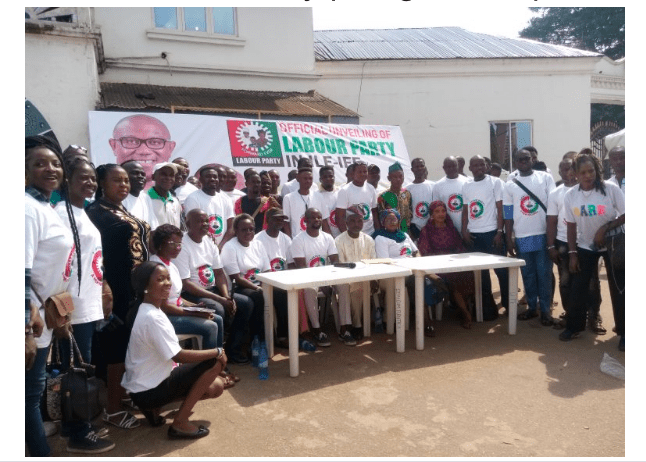Local Remedies, Sensitisation, Precautionary Measures Panacea To COVID-19 Spread In Nigeria—–As the country continues to record more cases of COVID-19, experts emphasise the need for effective and lasting measures to curtail further spread of the virus in Nigeria.
Some of the measures include intensifying efforts on research for local remedies, renewed and sustained sensitisation as well as adherence to precautionary/preventive measures.
Coronaviruses are a group of related viruses that cause diseases in mammals and birds. In humans, coronaviruses cause respiratory tract infections that can range from mild to fatal.
The News Agency of Nigeria (NAN) reports that on Dec. 31, 2019, the first reported known infections from severe acute respiratory syndrome coronavirus 2 (SARS-CoV-2) were recorded in Wuhan, China, though the original source of viral transmission to humans remains unclear.
It was on Feb. 11, 2020, that the World Health Organisation (WHO) officially issued the names COVID-19/ SARS-CoV-2 as the name of the new virus coronaviruses detected in Wuhan.
According to it, this name is chosen because the virus is genetically related to the coronavirus responsible for the SARS outbreak of 2003. While related, the two viruses are different.
In Nigeria, the first case of the virus emerged on Feb. 28, 2020 and the cases increased rapidly within six months to 47,743 cases with 979 deaths as of Aug. 12, 2020.
It steadily increased and a lockdown was eventually put in place alongside other measures to curb the spread of the virus.
When the attendant economic consequences of the lockdown in the country became unbearable, the government was compelled to announce a phased and gradual easing of the lockdown in the FCT, Lagos and Ogun states from May 5, 2020.
The cases continue to fluctuate with the different waves of COVID-19.
However, lately, the number of COVID-19 cases in the country have been on the rise since July 2022.
The Nigeria Centre for Disease Control (NCDC) also reports of an additional 144 new COVID-19 cases from Aug. 14 to 15, 2022 where Lagos State is ahead of other states with 101 cases.
A Virologist, Prof. Oyewale Tomori, called for more consistency in the way information, data and updates on COVID-19 pandemic are being provided to the general public in Nigeria.
Tomori, also the Chairman, Biovaccines Nigeria Ltd., tells NAN that there has not been adequate breakdown information on how or where the surge in the COVID-19 new cases are actually coming from; whether it is from people coming into the country or it is being spread among people who live in the country.
According to him, up-to-date information on the COVID-19 situations will pave the way for easy assessment, analysis and predictions concerning the disease at any point in time.
“For some time now, I have observed that there is no longer consistency in the way and manner in which updates and data/information about Covid-19 are being provided for public consumption.
“The NCDC that initially provides information and updates about Covid-19 on daily basis, no longer do so.
“The Centre now comes out to give updates on the disease on weekly basis – it is not supposed to be that way.
“ Information and updates on the condition is still supposed to be provided every day because in other countries, update is still on daily basis.
”This is because up-to-date information will make it easy for proper assessment, analysis, monitoring and predictions about the pandemic,” Tomori says.
Tomori urges the NCDC to intensify efforts to ensure wider information dissemination/coverage to greater percentage of the populace, because not everybody has access to its website or Twitter handle.
The virologist also calls on the Presidential Taskforce on COVID-19 to rise up to its mandates and deploy necessary strategic measures to contain the pandemic because it is still very much present in the country.
According to him, there is no longer information concerning the operations of the Taskforce.
He said, ”The major mandate of the taskforce is to coordinate and oversee Nigeria’s multi-sectoral inter-governmental efforts to contain the spread and mitigate the impact of the COVID-19 pandemic in Nigeria.
“But unfortunately, we no longer hear anything about its operations. Even the designated diagnostic laboratories seems not to be functioning.
“We seem to have abandoned all the precautionary measures of Covid-19; people no longer wear the facemasks – if they see you wearing the facemask, they look at you indifferently.
“And if people are no more observing the precautionary measures given the impression that COVID-19 is gone, then, it will catch-up on us unaware.
“Personally, I never removed my facemask in a gathering; even when they say remove facemasks for group photographs, I don’t remove mine because it doesn’t take more than a second for a person to contract the infection.”
Contributing, another virologist, Dr Everest Okeakpu, identifies “vaccination” as key in efforts to contain the spread of COVID-19 pandemic.
Okeakpu, also the Chief Operating Officer, Biovaccines Nigeria Ltd., decries that many Nigerians particularly those in the informal sector, has not been vaccinated for COVID-19.
According to him, the surge in the reported new cases of COVID-19 does not come as a surprise because the Nigerian society has completely abandoned all the precautionary measures to the disease.
“Vaccination is the first step to preventing the contraction of the infection.
“If you are vaccinated and at least obey the preventive measures – your chances of contracting the COVID-19 infection will be very low,” Okeakpu said.
He emphasises the need for people to always complete the dosage of the vaccine accordingly – first dose, second dose and the booster dose respectively, saying that would make the vaccine more effective.
Prof. Babatunde Salako, Director-General of the Nigerian Institute Of Medical Research ( NIMR), tells NAN that among measures to curtail and stop the spread of COVID-19 is the need for research and development of indigenous solutions.
He emphasises that continuous research on local remedies and surveillance should be of top priority.
“We have done all that should be done, what we need is more campaign against vaccine hesitancy and get more people vaccinated in the country’’.
Salako urges Nigerians to continue observing adhere to all precautionary measures given by the Nigeria Centre for Disease Control (NCDC) to curb the spread of the virus.
Also, Prof. James Damen, the National President, Association of Medical Laboratory Scientists of Nigeria (AMLSN), says many Nigerians no longer observe the basic safety precautions given by the NCDC.
“People are no longer observing the basic COVID-19 precautions in place and that is why we are seeing this increase.
“People should stick to these guidelines and the government also should not relent in educating the public on it.’’
Damen notes that some of the molecular laboratories provided by the government in institutions are not functioning well.
”The government have tried to provide molecular laboratories to institutions across the country but some are not functioning well because they are headed by pathologists which is not their area of expertise.
”Laboratories are supposed to be headed by lab scientists and we know Labouratory play key roles in terms of surveillance during pandemic or epidemic.
“We expect the government to do the needful,” he said.
He adds that more funds should be committed to fund research that would reduced the country’s dependence on foreign items.
”I think the government should take the issue of vaccine production , testing tools within the country into consideration because we have the expertise here in the country,” Damen says.
Indeed, the emergence of COVID-19 came with changes that give cause for people to readjust their outlooks and lifestyles to avoid the extreme consequences of the disease.
So, while the end of the virus still appears uncertain, especially with the dynamics, people have to live their lives.
Hence, in order to live this healthy “COVID-19 Free” life that experts advocate, among other strategies, there is need to develop local remedies, accelerate and scale-up integrated COVID-19 vaccination.
Adherence to the COVID-19 guidelines for their safety as well as increased and sustained sensitisation are also important for a ”COVID-free” lifestyle among residents and people of Nigeria. (NANFeatures)
***If used, please credit the authors and the News Agency of Nigeria








